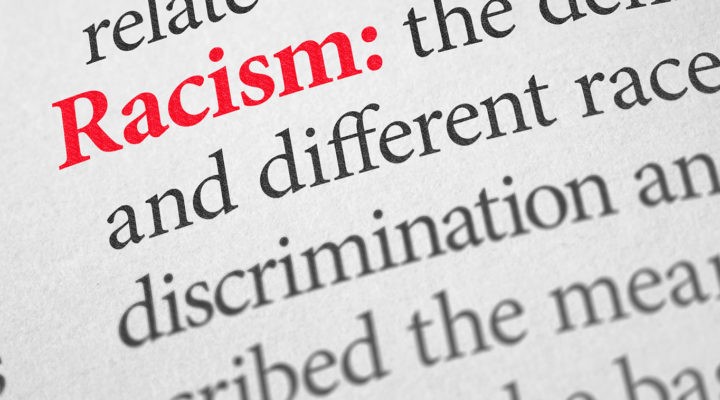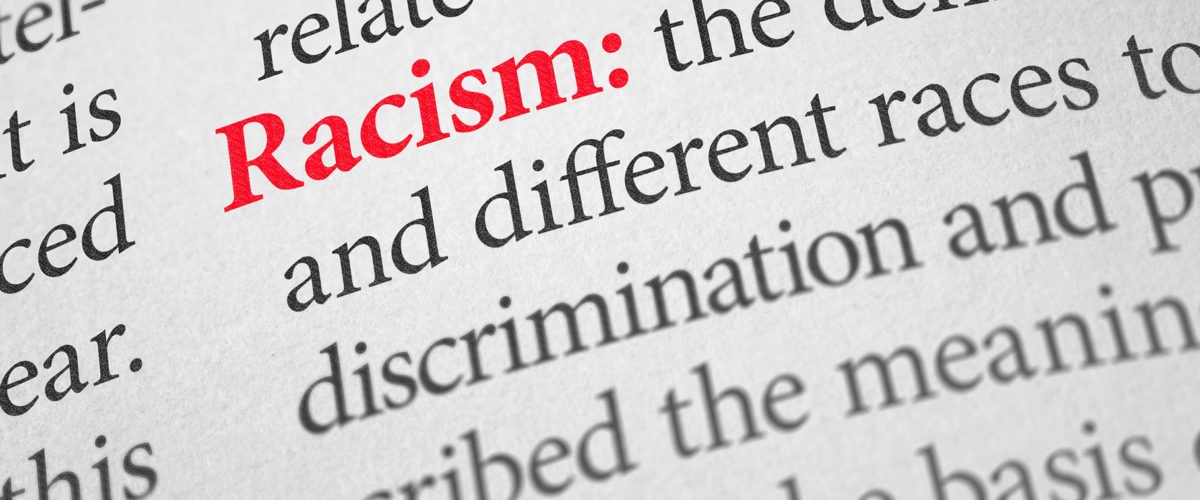Last week in Norman, Okla., where I serve as a pastor, our high school girls basketball team was playing in the state championship tournament. During the National Anthem, the team took a knee. The announcer, believing his microphone was turned off, proceeded to call them “f—- n—” as he initiated a profanity-infused rant.
Days later, after his rant went viral, he released a statement. Here’s part of it: “While the comments I made certainly seem to indicate that I am a racist, I am not. I have never considered myself racist and in short cannot explain why I made the comments.”

Jakob Topper
But he does go on to offer an explanation. So where does responsibility for the vile rant lay? Type 1 diabetes.
That’s right. In his telling, it’s more plausible that he made racist comments because he’s a Type 1 diabetic suffering from low blood sugar than because of any racial bias.
Reading his statement reminded me of an interview with former Ku Klux Klan leader David Duke in 2015 after he endorsed Donald Trump’s bid for the presidency. After Duke spit racist propaganda for a few minutes, the interviewer asked if Duke was a racist. “I am not a racist,’ was his response too. It’s the Zionist media that’s racist, he concluded.
In 2017, Christopher Barker, an imperial wizard of the Loyal White Knights of the KKK, gave an interview to a Washington Post reporter. The reporter asked Barker how he would address the 11 million unauthorized immigrants in the country.
“Don’t matter,” Barker said. “We killed six million Jews the last time. Eleven million is nothing.”
Later, Barker explained that he “don’t hate anyone,” and was “not racist.”
This week, Robert Aaron Long was charged with murder for driving to three Asian massage parlors to murder eight people in the Atlanta area. Six of the 8 victims were Asian American women.
Statements released by Sheriff Frank Reynolds claimed that the suspect gave no indicators that the crime was racially motivated. When pressed to share his reasoning, Reynolds stated, “We asked him that specifically, and the answer was no.”
“The first commandment of white supremacy is to deny that a white supremacist culture exists.”
By his own admission, Long claimed to be a sex addict who wanted to eliminate his temptation. Citing this statement, a Texas commentator said, “I’m not 100% convinced this was an act of racism. This guy had some serious mental and sexual issues.” The commentator ultimately joined scores of others by concluding, “I don’t think we have enough evidence at the present moment to place blame for this vile act on anti-Asian sentiment.”
I disagree.
For one thing, fetishism, misogyny and racism are bedfellows; they are anything but mutually exclusive categories. For another, targeting Asian women because he doesn’t like the way he feels about them is pretty much the textbook definition of a racist, sexist hate crime.
If Americans will deny racism in an example this blatant, then imagine how many other racist actions and attitudes our friends of color endure every single day that we also deny.
The first commandment of white supremacy is to deny that a white supremacist culture exists. The second and equal commandment is to deny racism at all costs. Something isn’t racist until there is a signed confession explicitly stating otherwise, and even then only sometimes and hesitantly.
If those who call high school girls the vile epithet that happened in Norman, who lead the Ku Klux Klan, or who advocate for the murder of 11 million immigrants can deny they are racist, can anything qualify? If Americans can deny that the bodies of six Asian American women isn’t enough evidence to discern a racist motive, then how many bodies would it take?
If we let racists define racism, then nothing ever will be considered racist.
“If we let racists define racism, then nothing ever will be considered racist.”
Unfortunately, white supremacy isn’t just for people like David Duke and Christopher Barker. It is the culture we live in as Americans, and it influences what we do and what we think more than most realize.
There’s the worn-out illustration of the young fish who asks the older fish for directions because he’s looking for water but can’t find it. “Son, you’re swimming in it now,” responds the older fish.
White supremacy is the culture we swim in, and we are so used to it that we don’t even notice that it’s there. A few genuinely can’t see it at all.
White supremacy culture is why “Black-on-Black crime” is an episode of 60 Minutes, but “white-on-white crime” never will be. When white people commit mass shootings, we talk about mental health and gun rights/control. We may even discuss violent video games. What we don’t do is hold panel discussions about white-on-white crime, because we rightly don’t attribute their behavior to their race.
The answer isn’t to start talking about white-on-white crime; it’s to stop racializing crime and address the factors that actually do contribute to crime rates.
For example, we know socio-economic factors correlate with crime. The question then becomes, why are so many more Black people living in poverty than white people per capita? That question leads us to talk about practices like redlining and racist federal lending policies, unequal education, mass incarceration, and how affirmative action and welfare have unfairly benefitted white people over Black people despite racist stereotypes.
The fact that we don’t know about these things or don’t believe them despite overwhelming statistical support is a product of white supremacy culture. The vast majority of white people do not have to know about these things, so we don’t. We’re even free to deny them if we wish, because they affect our lives so little. In fact, the more we can deny them, the more we can be sure to benefit from them.
“The first step in addressing racism in America is to admit it exists.”
The first step in addressing racism in America is to admit it exists. It is to break that first commandment of white supremacy culture and accept reality as it is and not as we wish it to be: Our culture unfairly benefits white people in ways from mundane flesh-colored bandages to far more horrific realities.
The second step is to admit that not only does racism exist in the abstract, but that I, myself, am racially biased in ways I may not even know yet. I was born and raised in a white supremacist culture, and I can no more avoid being affected by it than a fish living in the ocean can avoid being wet.
We all have racial biases. Every single one of us. Pretending that we don’t makes us ignorant and dangerous, not enlightened. There is freedom in letting the facade drop and investing that energy in a worthwhile struggle instead.
Related articles:
Racists don’t get to determine who’s a racist | Opinion by Mark Wingfield
Dear non-racist white people: stop saying we’re not racist | Opinion by Kyndall Rae Rothaus
Racism is never an innocent joke | Opinion by Chris Conley


